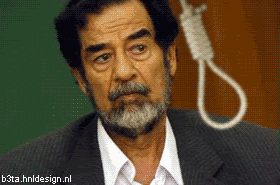Going it Alone,...
Allies on the cheap
Author:
Max Boot, Senior Fellow for National Security Studies
February 28, 2007
Los Angeles Times
Author:
Max Boot, Senior Fellow for National Security Studies
February 28, 2007
Los Angeles Times
Tony Blair’s decision to withdraw 1,600 troops from Iraq is understandable. The prime minister had to make a difficult decision about where to allocate Britain’s scarce resources, and he decided, reasonably enough, that the top priority was to send reinforcements to Afghanistan, where 5,500 British troops are struggling to hold back a Taliban onslaught.
The tragedy is that he had to rob Peter to pay Paul because Britain can’t maintain 7,000 troops in Iraq and 7,000 in Afghanistan. Those are hardly huge numbers for a country of 60 million with the fifth-largest national economy in the world. Yet even as Britain has continued to play a leading role in world affairs, it has allowed its defenses to molder.
The total size of its armed forces has shrunk from 305,800 in 1990 to 195,900 today, leaving it No. 28 in the world, behind Eritrea and Burma. This downsizing has reduced the entire British army (107,000 soldiers) to almost half the size of the U.S. Marine Corps (175,000). Storied regiments such as the Black Watch and the Royal Scots, with histories stretching back centuries, have been eliminated.
Even worse hit is the Royal Navy, which is at its smallest size since the 1500s. Now, British newspapers report, of the remaining 44 warships, at least 13 and possibly as many as 19 will be mothballed. If these cuts go through, Britain’s fleet will be about the same size as those of Indonesia and Turkey and smaller than that of its age-old rival, France.
Britain is hardly alone in its unilateral disarmament. A similar trend can be discerned among virtually all of the major U.S. allies, aside from Japan. Canada is a particularly poignant case in point. At the end of World War II, Canada had more than a million men under arms and operated the world’s third-biggest navy (behind the U.S. and Britain), with more than 400 ships. Today, it has all of 62,000 personnel on active duty, and its navy has just 19 warships and 23 support vessels, making it one-fourth the size of the U.S. Coast Guard.
Of course, numbers aren’t the entire story. Both Britain and Canada have top-notch soldiers, allowing them to punch above their weight class in military affairs. But there is only so much that a handful of super-soldiers can accomplish if their numbers are grossly inadequate. Quality can’t entirely make up for lack of quantity.
This shortfall has serious repercussions not only for those countries but for the United States. With about 165,000 troops deployed in Afghanistan and Iraq and more on the way, we are seriously overstretched ourselves. We need as much help as we can get, but there isn’t much more that our allies could do, even if they wanted to.
Look at Afghanistan, where NATO is always having trouble dredging up an extra helicopter or another infantry battalion to throw into the fray. The British and Canadians are doing more than their share; their willingness to fight hard and take casualties sets them apart from most NATO countries, which prefer to send troops to safe parts of Afghanistan rather than to the front lines in the south and east. But 5,500 British and 2,500 Canadian soldiers can cover only so much ground, even with another 1,500 Brits thrown in. As usual, the United States, with more than 27,000 troops in Afghanistan, is left to carry the lion’s share of the burden.
The primary culprit is declining defense spending among U.S. allies. According to the International Institute for Strategic Studies, defense budgets among NATO members, excluding the U.S., have fallen from 2.49% of gross domestic product in 1993 to 1.8% of GDP in 2005. Britain is actually above the norm, spending 2.3% of GDP, or $52 billion, on defense. Canada, with a defense budget of $13 billion, is below the norm, at 1.1%.
But all those expenditures fade into insignificance by comparison with the U.S., which spends $495 billion a year, or 4% of the world’s largest GDP, on its armed forces. That’s more than the rest of NATO combined, even though the other countries have, in aggregate, greater demographic and economic resources.
Unless the other NATO members are willing to step up their spending—and what are the odds of that?—there is scant chance that their gripes about American unilateralism will ever be rectified. We act alone, or almost alone, not out of choice but out of necessity.
The TrekMedic adds:
More than a decade of Liberal leadership in Britain has brought them to this sorry state. Imagine what will happen in the US if we continue to let Empress Nancy and Co. continue to run our nation?


























0 Comments:
Post a Comment
<< Home